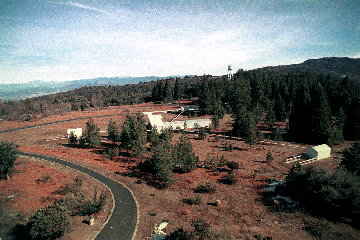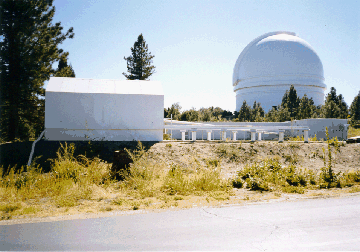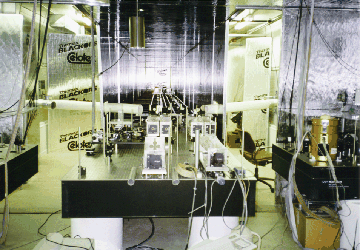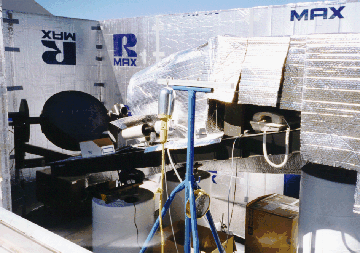Palomar Testbed Interferometer Tour
|
Figure 1
Figure 1 is an aerial view of the Palomar Testbed Interferometer,
funded by NASA to demonstrate technology for ground-based interferometry.
Light collected by three small telescopes in the three small buildings
is directed through pipes to the central beam combining building. The separation
among the three telescopes is 110 meters. |
  |
|
Figure 2
Figure 2 shows the outside of one of the small buildings
housing one of the interferometer's telescopes. In the background is the
central beam combining building, and behind that, the Palomar 200-inch
telescope. |
  |
|
Figure 3
Figure 3 shows a view of part of the inside of the beam
combining building. Light from the two telescopes enters through the two
white pipes shown, and is directed down the long tunnel to optical delay
lines which move under computer control along precision tracks. Light from
the delay lines is then reflected back toward the optical table in the
center of the picture, which contains additional optics, and then is directed
toward two beam combiner tables on either side of the picture. |
  |
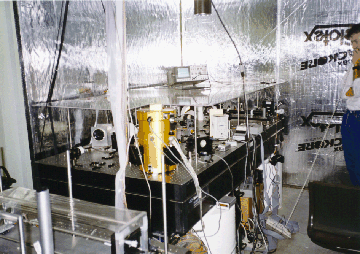 |
|
Figure 4
Figure 4 shows one of the beam combiner tables. These
are essentially the 'cameras' of the interferometer. The gold dewar contains
the infrared detector which measures the interference of light collected
by the two telescopes. Other optics are used for tracking, metrology, and
calibration. The location of the maximim of interference tells the scientist
about the location of the celestial object, while the strength of the interference
provides information about the size and structure of the object. |
  |
|
Figure 5
Figure 5 shows the interior of one of the small buildings.
To the left is a gimbal which steers a flat 0.5-meter mirror (the mirror
cover is on) to direct starlight into the telescope, which is shown pointing
at the gimbal, angled down at 15 degrees. Light from the telescope is directed
to the central beam combining building. |
  |
return to the Palomar Testbed Interferometer page
Last Updated: August 24, 1999
